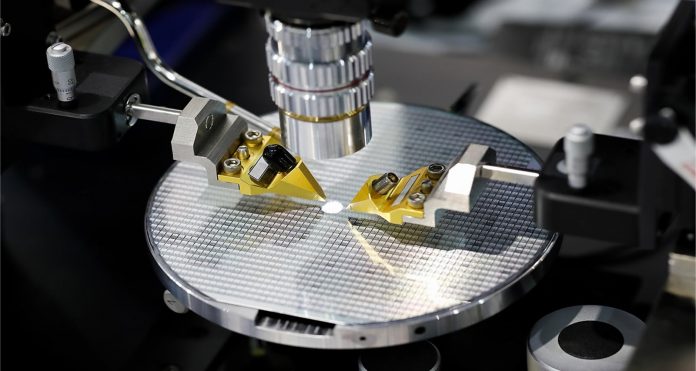Computer vision specialist Landing AI has a unique calling card: Its co-founder and CEO is a tech rock star.
At Google Brain, Andrew Ng became famous for showing how deep learning could recognize cats in a sea of images with uncanny speed and accuracy. Later, he founded Coursera, where his machine learning courses have attracted nearly 5 million students.
Today, Ng is best known for his views on data-centric AI — that improving AI performance now requires more focus on datasets and less on refining neural network models. It’s a philosophy coded into Landing AI’s flagship product, LandingLens.
Founded in 2017, Landing AI counts among its users Foxconn, StanleyBlack&Decker and automotive supplier Denso. They and others have applied deep learning to improve their efficiency and reduce costs.
A chip maker with manufacturing plants around the globe was one of the first to try LandingLens. It wanted to use deep learning to improve throughput and yield of the wafers that carry chips through its fabs.
Like all chip makers, “they have a lot of visual inspection machines on the fab floor that scan wafers at various steps — and they do a good job finding anomalies — but they didn’t do as well classifying the things they found into types of defects,” said Quinn Killough, Landing’s liaison to the customer.
And like many chip makers, it had tried a variety of software programs for classification. “But the solutions needed to be fine-tuned for each product and with more than 100 products, the investment wasn’t worth it,” said Killough, who has a background in computer vision and manufacturing.
Then the customer applied AI with LandingLens. It’s designed to handle the end-to-end MLOps process — from collecting data to training and deploying models — then manage the ongoing process of refining the models, and especially the data, to enhance results.
Although it’s still early days for the deployment, the product and its data-centric approach have already helped the chip maker reduce costs.
“The primary engineer driving the project said he sees deep learning as transformative and wants to scale it out across his facility and get other plants to adopt it,” said Killough.
The chip maker used LandingLens on NVIDIA V100 Tensor Core GPUs in a cloud-based service that runs inference on hundreds of thousands of images a day.
“We weren’t sure of the throughput capabilities at the beginning, but now it’s clear it can handle that and a lot more,” said Killough.
The same service can train a new classification model in less than a minute using about 50 defect images so users can iterate rapidly.
“On the training side, it’s very important for our tool to feel snappy so our customers can troubleshoot problems and experiment with solutions,” he said.
Now the company is taking the AI work to the factory floor with a new product, LandingEdge, which is in beta tests with several customers.
It captures images from cameras, then runs inference on industrial PCs equipped with NVIDIA Jetson AGX Xavier modules. Insights from that work feed directly to controllers that operate robotic arms, conveyor belts and other production systems.
“We aim to improve quality controls, creating a flywheel effect for fast and iterative AI processes,” said Jason Chan, product manager for LandingEdge.
To get early access to the latest technology and expertise, Landing AI joined the NVIDIA Metropolis program, geared for companies using AI vision to make spaces and operations safer and more efficient.
It’s still early days for the company and data-centric AI, which Ng believes may be one of the biggest tech shifts in this decade.
To learn more, watch a GTC session (free with registration) where Ng describes the status and outlook for the data-centric AI movement.
Out of This World: ‘Mass Effect Legendary Edition’ and ‘It Takes Two’ Lead GFN Thursday Updates
Stunning Insights from James Webb Space Telescope Are Coming, Thanks to GPU-Powered Deep Learning
Festo Develops With Isaac Sim to Drive Its Industrial Automation
What Is Zero Trust?
Feel the Need … for Speed as ‘Top Goose’ Debuts In the NVIDIA Studio
NVIDIA websites use cookies to deliver and improve the website experience. See our cookie policy for further details on how we use cookies and how to change your cookie settings.






